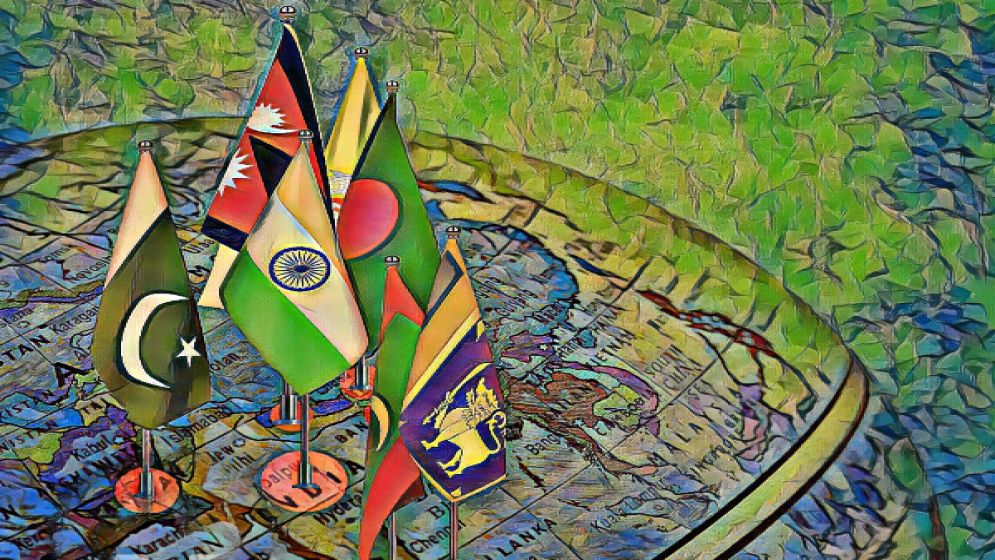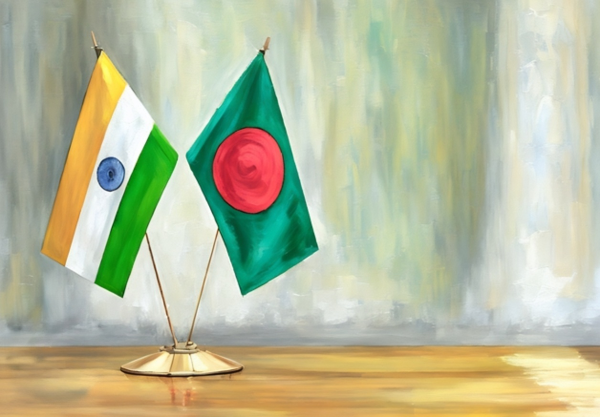Bangladesh is no longer just “India’s backyard”…and here is why..

The recent meeting between the U.S. President Donald Trump and Indian Prime Minister Narendra Modi have ignited a new set of debates about the trajectory of Bangladesh-India relations.
In his press conference, Trump’s offhand comment, "I leave Bangladesh to PM Modi," was quickly seized upon by Indian media and social media users alike as tacit U.S. endorsement of India’s sway over Bangladesh.
Yet this interpretation overlooks a critical nuance: Bangladesh is an autonomous nation, one that has evolved far beyond the reach of any external power.
Diplomatic history is replete with examples of nations that shed the influence of former political overlords as they mature.
Bangladesh’s remarkable strides in economic growth, social development, and international diplomacy affirm its independence and ability to navigate global affairs on its own terms.
To reduce Bangladesh to a mere extension of India’s power is not only dismissive of its agency but also ignores the aspirations and resilience of its people.
As Frank Underwood from House of Cards once astutely observed, “Power is a lot like real estate. It’s all about location, location, location.”
Bangladesh, nestled strategically in South Asia, is far more than a secondary player in a broader geopolitical game.
Looking back to the 1971 war of liberation, Bangladesh's struggle was not simply a fight for political autonomy—it was an assertion of its distinct national identity.
India’s instrumental support in securing Bangladesh’s independence was invaluable, but it should not be mistaken for an enduring claim of influence.
Over the past five decades, Bangladesh has charted its own path, lifting millions out of poverty, improving literacy rates, and emerging as the world’s second-largest apparel exporter.
These milestones are a testament to a nation that is not just surviving, but thriving independently.
Trump's comment thus can be viewed through a different lens—it might not indicate deference to India but rather a lack of concern for the Bangladesh issue altogether.
His "America First" rhetoric and transactional foreign policy approach suggest that, unless Bangladesh serves a direct U.S. strategic interest, it falls outside Washington’s radar.
This mirrors themes seen in political dramas like Designated Survivor, where diplomacy is driven more by economic and military interests than by moral considerations.

Interpretation can reflect a different view
Throughout his presidency, Trump exhibited a clear pattern of disengagement from global matters unless they aligned with U.S. economic or military goals.
His administration's withdrawal from international organizations such as UNESCO and the WHO, its selective imposition of sanctions, and its prioritization of economic gains over traditional alliances all reflect this stance.
Given this framework, his remark on Bangladesh likely signals a lack of investment in South Asian affairs, except when it intersects with trade or counterterrorism concerns.
Were Bangladesh to become a key player in China's sphere of influence, U.S. interest would likely spike.
Modi’s silence on Bangladesh during the press conference highlights the delicate balancing act India faces.
While the historical ties between India and Bangladesh are deep, the latter’s growing diplomatic maneuvering with a range of global players—including China, the U.S., and the EU—illustrates its rising stature.
Bangladesh is no longer a passive actor in South Asian politics but an active participant shaping its own future.
As depicted in shows like The West Wing, where political strategy shapes every action, Bangladesh’s leadership must continue its calculated diplomatic efforts to assert its sovereignty.
India’s concerns over Bangladesh are multifaceted, rooted in economic competition, water-sharing agreements, border security, and China's increasing influence in the region.
Bangladesh's participation in China's Belt and Road Initiative (BRI) and its military dealings with Beijing have raised alarms in New Delhi.
However, India cannot afford to alienate Bangladesh, given their shared border, economic interdependence, and mutual security concerns.
Bangladesh’s economic trajectory further underscores its growing independence. As one of the fastest-growing economies in the region, it has emerged as a key player in textiles, infrastructure, and technology.
The country’s drive for self-sufficiency, coupled with strong regional and global trade relationships, showcases its ability to chart its own course, free from external influence.
Bangladesh’s strategic alliances stretch well beyond South Asia. The country has cultivated robust diplomatic ties with the Middle East, the European Union, and ASEAN nations, crafting a diverse foreign policy that mitigates reliance on any single power.
This approach mirrors the political maneuvering seen in shows like House of Cards, where leaders constantly forge new alliances to stay ahead of rivals.
China’s increasing influence in South Asia adds complexity to Bangladesh’s foreign policy landscape.
Beijing’s investments in major infrastructure projects, such as the Padma Bridge and Payra Port, signal its strategic interest in Bangladesh.

The economical
dynamics for sovereignty
While both India and the U.S. view China’s presence in the region with caution, Bangladesh has skillfully balanced its relationships without fully aligning with any one bloc.
This deft navigation of global power dynamics evokes the political chess matches depicted in The West Wing and House of Cards, where leaders leverage competing interests to maintain their autonomy.
By engaging with a variety of economic and military partners, Bangladesh ensures it remains independent, avoiding overdependence on either India or China and preserving its sovereignty.
The country’s shift from a one-party state to a multiparty democracy, despite ongoing challenges, marks a maturing political landscape.
Bangladesh’s civil society, vibrant press, and active, progress-driven youth population reinforce its path toward independence.
Political dramas often underscore the crucial role domestic stability plays in shaping a nation’s global influence.
In Designated Survivor, for example, President Kirkman must balance internal struggles while projecting strength abroad.
Similarly, Bangladesh’s leadership must focus on bolstering domestic governance and economic stability to solidify its position as an independent, sovereign nation on the world stage.
While India remains a key neighbor and partner, the idea that Bangladesh is subject to India’s influence is increasingly outdated.
A new geopolitical landscape is emerging, one in which Bangladesh operates as a self-reliant, sovereign nation. Although the Trump-Modi meeting stirred speculation, the truth remains clear:
Bangladesh’s future will be shaped by its own people and leadership, not by the dictates of foreign powers.
Bangladesh’s expanding presence in global forums, its proactive diplomacy, and its economic resilience all highlight a nation that is fully capable of making independent decisions.
The true lesson from the House of Cards playbook is that power is dynamic and ever-evolving. Just as the show’s characters must adapt to shifting political currents, Bangladesh must continue to harness its strengths, forge strategic alliances, and assert its sovereignty.
As both historical and fictional narratives underscore, genuine power resides in self-determination and strategic independence.
Bangladesh has reached a stage where it can chart its own course without being overshadowed by India or any other external force. The world must recognize and respect Bangladesh's rising influence as a sovereign player on the global stage.
—-
Writer- H. M. Nazmul Alam is an Academic, Journalist, and Political Analyst. He can be reached at [email protected]

